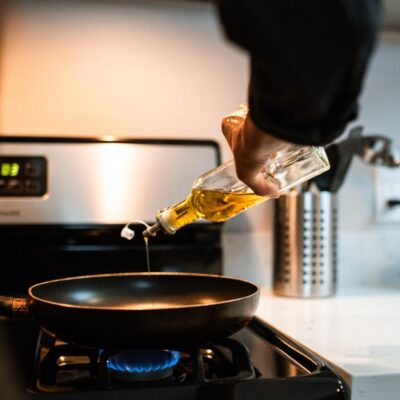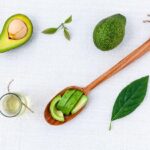No, vegetable oil is not safe for dogs. While small quantities of the oil are not fatal for dogs, regular intake of quantities of vegetable oil can be potentially dangerous and cause issues like obesity and pancreatitis. Vegetable oil also contains corn and soybean byproducts that can cause allergic reactions in your fur baby. Moreover, cooked vegetable oil produces acrolein, which is a toxic substance for dogs.

Caution: This food is generally considered risky by the veterinary community. Dogs should not eat this food and should be monitored for adverse effects.
| Food Safety | caution |
| Nutritional Issues | high content of fat, acrolein, soybean and corn |
| Potential Risks | obesity, pancreatitis |
| Symptoms | diarrhea, weight gain |
How Much Vegetable Oil is Unsafe for Dogs?
Ingesting a small amount of vegetable oil is not toxic or harmful for dogs, but increased quantities of the oil can pose a potential danger to their health. Many dog owners add vegetable oil to their pup’s food – which can have extremely harmful long-term effects on their health.
Moreover, if a dog is allergic to corn and soybean (like most dogs are), they are likely to show an instant reaction to the oil; hence it’s best to avoid giving it to them altogether.
What Makes Vegetable Oil Unsafe for Dogs?
Vegetable oils are essentially liquified fat, and a high intake of fat can cause serious gastrointestinal issues in dogs. Moreover, regular consumption can cause weight gain, which leads to illnesses like severe obesity and pancreatitis.
Another big issue with feeding your dog vegetable oil is that the oil contains corn and soybean as its byproduct, and both these ingredients can trigger allergies causing negative reactions in canine friends’ bodies.
Lastly, feeding dogs using vegetable oil is much worse than feeding them raw vegetable oil because used oil produces acrolein after going under high heat. Acrolein can be toxic for mammals, including dogs, and it’s best to keep it away from your canine friend.
Signs Your Dog Consumed Too Much Vegetable Oil
If you have regularly fed your dog vegetable oil or suspect they have accidentally consumed it in high quantities, look out for signs of indigestion, such as vomiting and diarrhea. In cases of exposure to acrolein, your pup might show symptoms of acrolein exposure such as frequent vomiting and dizziness – in which case you must rush them to a vet immediately.
Tips for Oil-Free DIY Dog Food
It’s best to avoid feeding your dogs oils and added fats when preparing their meals and treats. It can be a habit to add oil to most human foods during preparation but here are some tips to make tasty dog-friendly food without adding vegetable oils.
- Use parchment paper when roasting vegetables in the oven to avoid sticking or burning to the sheet pan
- Steam foods or pan fry with water on the stove
- Pop the food in an Airfryer to crisp it up without any oil at all
Frequently Asked Questions
-
No. Many dog owners feed their dogs vegetable oil as a cheap laxative without realizing how harmful it can be to their overall health.
-
Vegetable oil is unsafe for dogs for many reasons, such as its high-fat content, which poses the risk of obesity. It also contains corn and soy as a byproduct which can trigger allergic reactions in pups.
-
While it’s better not to include cooking oil in your dog’s diet, however, some oils are considered safe for dogs. You can add avocado, fish, or flaxseed oil to your furbaby’s diet if need be.







